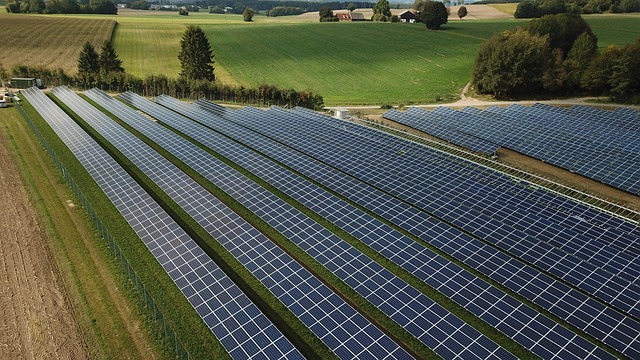Submission to the UK Department for Environment, Food & Rural Affairs: response to the Land Use in England open consultation

Download
This submission was made in response to an open consultation by the UK Department for Environment, Food & Rural Affairs (Defra), on land use in England to support design of a future Land Use Framework (LUF) for England. It integrates insights from across the research expertise at the Grantham Research Institute on Climate Change and the Environment.
Key messages
The submission addresses the following key points in response to Questions 1–5, 8, 14 and 23–24 in the consultation.
Scale of change
The proposed scale of land use change is insufficient to meet climate and biodiversity goals. Limiting the LUF to just 12.7% of England’s land area risks undermining statutory commitments such as the 30by30 biodiversity target and net zero emissions by 2050. A holistic approach is needed — one that considers the entire English landmass, prioritises nature recovery, and enables multifunctionality in both rural and urban areas. The authors highlight the need for stronger, spatially explicit land use planning to address the ‘land crunch’ and integrate multiple public goods including climate resilience, renewable energy generation, nature recovery and sustainable food production.
Land use change principles
The proposed land use principles are broadly supported, with key refinements. The principle of co-design must better engage ‘hard-to-reach’ farmers by employing trusted local intermediaries. Multifunctionality should be explicitly encouraged, with examples such as Agri-PV illustrating how land can simultaneously produce food, energy and ecological benefits. Land use must also be resilient to climate and market shocks, with spatial targeting based on environmental opportunity and future climate risks. Policy must incentivise and reward diversification and innovative nature-positive farming practices.
Incentives and definitions
The current statutory definition of agriculture, which prioritises food production, is outdated. A broader, future-focused conception of farming should recognise the growing role of biomass and bio-based materials in a post-fossil fuel economy and the need for farmers to produce these goods. Policy frameworks should support cultivation of crops for energy, construction and carbon sequestration. Achieving this may require redefining the purpose of agriculture in legislation.
Governance and funding
Delivering land use change hinges on consistent and adequate public funding. The current Environmental Land Management budgets fall short of the estimated £2.5–£3.2 billion annually required in England to meet statutory targets. The Government must provide predictable, multi-year financial support and link the LUF to Environmental Land Management schemes (ELMs), planning, and dietary transition policies. Clear governance frameworks are also important. Cross-departmental taskforces and local authority mandates — modelled on climate governance structures in countries like New Zealand — may improve coordination and implementation.
Driving a just transition
Multifunctional land use will necessitate new skills and livelihoods in rural areas. The expected decline in the livestock farming sector must be offset by employment in areas like afforestation, the bioeconomy, renewable energy, conservation and peatland restoration. Government support for training, apprenticeships and agricultural education reform is essential. Upskilling must be aligned with a low-carbon rural economy and provide farmers with practical, financially viable pathways to transition.
Preventing emissions leakage
Land use change cannot be considered separately to the broader food systems transformation. Linking strategic land use planning to the requisite climate-aligned dietary changes will avoid emissions leakage. Dietary shifts away from red meat and dairy, food waste reduction, and improved yields will be essential to free up land for nature and climate goals while maintaining food security. Scenarios modelled by the UK Climate Change Committee (CCC) and others show that these demand-side changes can offset reductions in domestic food output and allow England to contribute meaningfully to net zero without increasing reliance on imports.
Implementation and monitoring
The LUF should be updated every five years to ensure it remains aligned with science and other policy processes. Similar to emissions budgeting under the UK Climate Change Act, this periodic review should be supplemented by annual progress reporting to improve accountability. Embedding land use considerations into government decision-making requires statutory clarity and alignment across departments. The National Planning Policy Framework, ELMs and the Environment Act targets must be connected to the LUF to reduce fragmentation and drive coherent policy implementation across sectors.

